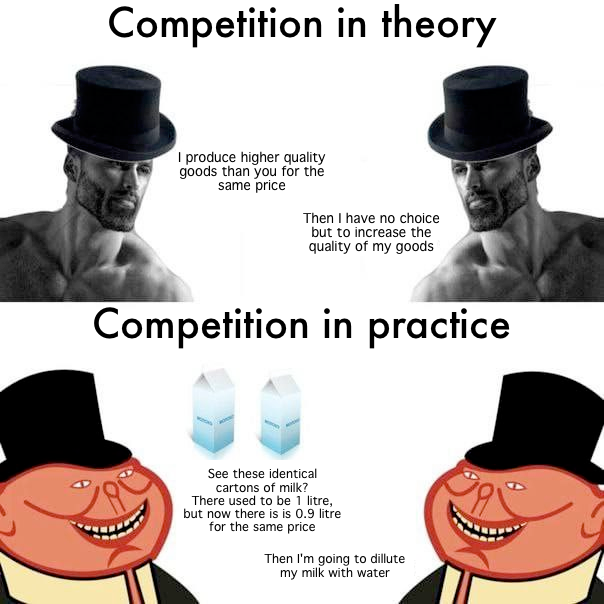this post was submitted on 25 Aug 2023
403 points (96.8% liked)
Memes
4754 readers
100 users here now
Good memes, bad memes, unite towards a united front.
founded 6 years ago
MODERATORS
you are viewing a single comment's thread
view the rest of the comments
view the rest of the comments

Under capitalism didn't the monarchs that were formally in charge lose power to the new capitalists though? For one, King George losing the colonies. I'm guessing a lot of the founding fathers probably were descended from feudal lords though.
Well George Washington wasn't poor. The american revolution isn't a great example though as on top of being a bourgeoise revolution it was a break away of a colony. Added to that the fact that British society was at that point primarily capitalist with feudalism having been gradually whittled away by enclosure.
Britain in general is not a good example of this as the transition from feudalism to capitalism didn't happen in a clean one then the other switch but by a more gradual process and Britain still has feudal elements like the land largely being owned by the aristocracy, a monarch, and a legislative body with a power over which laws are passed with heritable seats for members of the aristocracy. That said the aristocracy weren't what they were and many are flat broke. Britain is a complicated case study for my point here
The French revolution is a much better example as it was one group of rich people overthrowing the aristocracy and abolishing the traditional rights of the aristocracy because they were ideologically motivated to by liberalism and then proceding to establish a capitalist economy
(the socialist movement is in many ways recognisably older than liberalism for example the preaching of John Ball in the 14th century and was opposed to feudalism so in the french revolution and english civil war was noticably present in the anti feudalism movement but the movements themselves weren't socialist) - like how socialists also revolted against the shah but the movement ended up being islamist not socialist